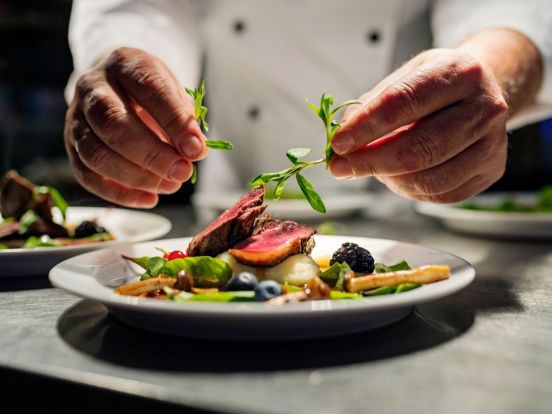Unilever Food Solutions (UFS) has released its 2024 Future Menus trend report in New Zealand and Australia (ANZ) highlighting eight trends that are set to shape the foodservice industry (restaurants, cafes, pubs and other similar businesses), locally and across the globe over the next 12 months.
Two of the trends featured in the report: low-waste menus and modernised comfort food are especially relevant for the Australian and New Zealand hospitality venues, according to UFS ANZ market analysis as well as the e-panel, conducted with local Chefs.

With the cost of produce rising year-on-year, it has never been more important for kitchens to make use of every edible part of each ingredient, and chefs are getting increasingly creative with would-be waste.
A huge focus in hospitality venues everywhere is on leaner and more profitable menus as businesses make more data-driven decisions, especially in the face of challenges such as staff shortages. Not only do smaller menus help to cut down food waste and costs but also allow for more sustainable operations and better-quality menu offering.
Kiwi chefs, restaurateurs and recipe creators are also re-discovering local traditions, and reimagining dishes by looking to their history and the restaurant’s locale for fresh ideas in an industry that increasingly demands authenticity.
This, coupled with the demand for local, sustainable sourcing, means through rich culinary storytelling and a chef’s genuine connection to the dish, diners are being presented with old comfort classics but with a modern twist.
Andrew Ballard, Executive Chef at Unilever Food Solutions ANZ, said: “Aussie and Kiwi chefs are contending with a lot of challenges right now – from rising costs and staff shortages to tackling wider sustainability issues such as food waste and responsible sourcing of ingredients.
“The release of the Future Menus Trend report offers more than inspiration to chefs; it provides valuable resources that highlight current trends and also prepare them for the future. With practical training, techniques, dish inspiration, product hacks, and cost-efficient solutions from other expert professionals, chefs can feel confident and excited about tackling the challenges and embracing the opportunities in the food industry over the next 12 months.”
Fine Food Launch For Future Menus
To launch Future Menus 2024, UFS will hold a series of presentations at the Fine Foods trade show held in Melbourne on 2 September – 5 September. These will be hosted on the Talking Trends stage with a 45-minute presentation on Tuesday 3rd September focusing on ‘Low-Waste Menus’, sharing relevant best practice industry case studies with Aussie chefs from Three Blue Ducks and Butter.
Darren Robertson, co-owner and chef at Three Blue Ducks, said: “For me, comfort foods are as much about taste as they are tapping into a sense of nostalgia, giving both cook and diner a deeper connection to the dish.
“Australia and New Zealand have a rich and incredibly diverse foodie culture, and I’m a massive fan of recreating classic dishes and showcasing locally grown ingredients that we know and love. A mindful waste perspective is also a huge motivation for us, as we cook these dishes with as little waste as possible as well as respect for local tradition.”
Julian Cincotta, co-owner and chef at Butter, said: “Embracing a low-waste menu is not just about reducing our footprint — it’s about rethinking our resources. Crafting dishes that maximise every ingredient’s potential, turning what was once considered waste into culinary gold. This approach not only enhances the sustainability of our great industry but also elevates our creativity, proving that great food can be good for the planet too.”
The other global trends explored in the report include a rising demand for unexpected flavour combinations, new dynamic and interactive ways to share food, the mainstreaming of plant-based dishes, multi-sensory dining experiences, feel-good food, and the celebration of local produce.
Along with a deeper exploration into these key trends, the report also features insights and input from more than 1,6000 in-house chef professionals, providing practical, action-driven solutions for foodservice operators, including recipe suggestions, preparation techniques, and ingredient solutions.
To download your copy of the report, click here.








